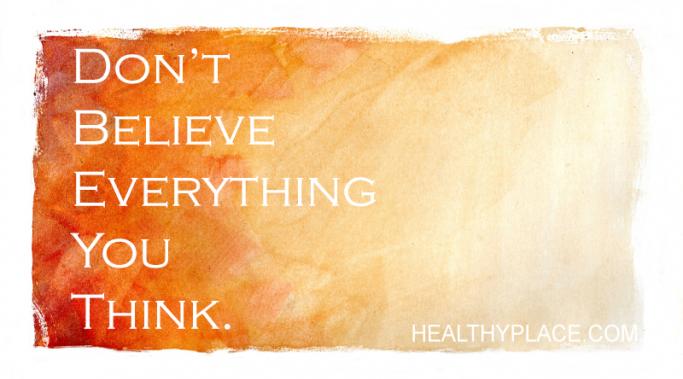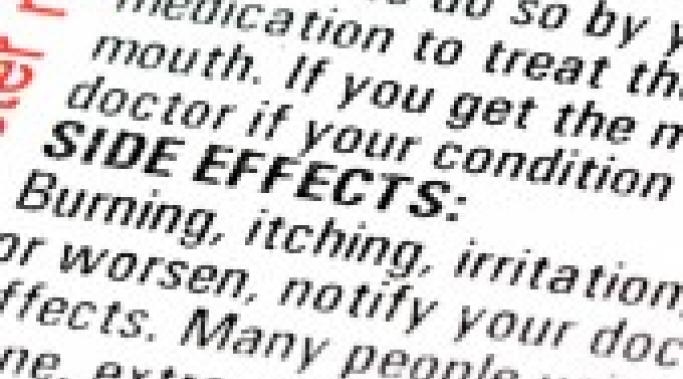Blogs
Today, Funny In The Head is taking a break from the usual frivolity to help my dear friends at HealthyPlace roll out their “Stand Up For Mental Health” campaign. I believe this subject is absolutely essential to all of us who, in one way or another, have been touched by mental illness.
In addition to borderline personality disorder (BPD), I experience flashbacks and intrusive memories--symptoms of post-traumatic stress disorder (PTSD). Both disorders manifested around the same time, which has caused several mental health professionals to speculate that my BPD is a type of PTSD (Subtypes of Borderline Personality Disorder). Symptoms I experience include flashbacks and intrusive memories, which manifested when I was a freshman in college.
Hiya readers! In a previous post, I shared some ADHD Trivia about Bob's diagnosis and treatment. Today, I wanted to share how challenging it was to co-parent Bob with his father who was in even MORE denial than I was about Bob's diagnosis.
Unless you’ve been living under a rock then you have undoubtedly heard about the recent admission by Lance Armstrong that he used anabolic steroids during his pursuit of seven straight Tour de France victories from 1999 to 2005. This public admission has served to once again highlight the use of steroids by athletes to enhance their athletic performance. From weightlifters like Lou Ferrigno to baseball players like Barry Bonds, the professional sports world has been rocked by these scandals. But are these substances addictive?
This may be a dark post-- an angry post. Like that ugly picture which makes perfect sense to me. But I cannot paint this topic in pretty colors; I can paint it in black.
I hate addiction. I despise it. In all of its forms. Addiction is insidious. It sneaks up on you slowly and with intent. Before you can pull away it's already walking beside you: walking beside you even though you want to run the hell away.
Yes, I am describing addiction abstractly because its tremendously hard for me to put words to that which nearly killed me. And that which does the same to many people struggling with it.
It's not for the faint of heart--not when it can stop your heart.
Cognitive distortions change your reality in a negative direction, and are controlled by what you think about yourself and your world. Stigma is undoubtedly created by outside forces such as schoolmates, colleagues and the media. But I argue that a good portion of stigma stems from how we think about ourselves, how we describe ourselves and what faulty thinking patterns we have adopted to cope with mental illness. So identifying your cognitive distortions will help you fight self-stigma, which in turn fights social stigma.
I developed school refusal in eighth grade. It wasn’t sudden. Over several months, I went from a straight A student who was reluctant to miss school even when sick, to a near dropout. First, my schoolwork suffered. I hid the cause of my academic decline behind rebellion and dyed black hair, so my school blamed hormones and started handing out detentions.
Christie Stewart
It is common for people who have anxiety to engage in self-injury as a coping mechanism, to help reduce the symptoms of anxiety and induce feelings of numbness, or even euphoria. In this video blog, I explain why self-injury seems to calm anxiety in some people -- and why, ultimately; it is an unhealthy coping mechanism that should be replaced by healthy ones.
Are you having problems making friends since leaving your abusive relationship? You aren't alone in being alone. Abuse survivors make it out of their abusive relationships often to find they have no friends, or at least no one they can trust to be a friend. And after so much time in an abusive relationship, the effects of the emotional abuse can leaving you feeling like you're not worthy of a friend. Despite the problems, you can make good friends after an abusive relationship and create a life you want to live.
Its 6:59 on Thursday morning. I've been drinking coffee and procrastinating online for an hour; the radio is always on and I don't usually hear it. I just like background noise. That's the hyperactive part of me. More than one thing always needs to be happening. It's pretty irritating.







